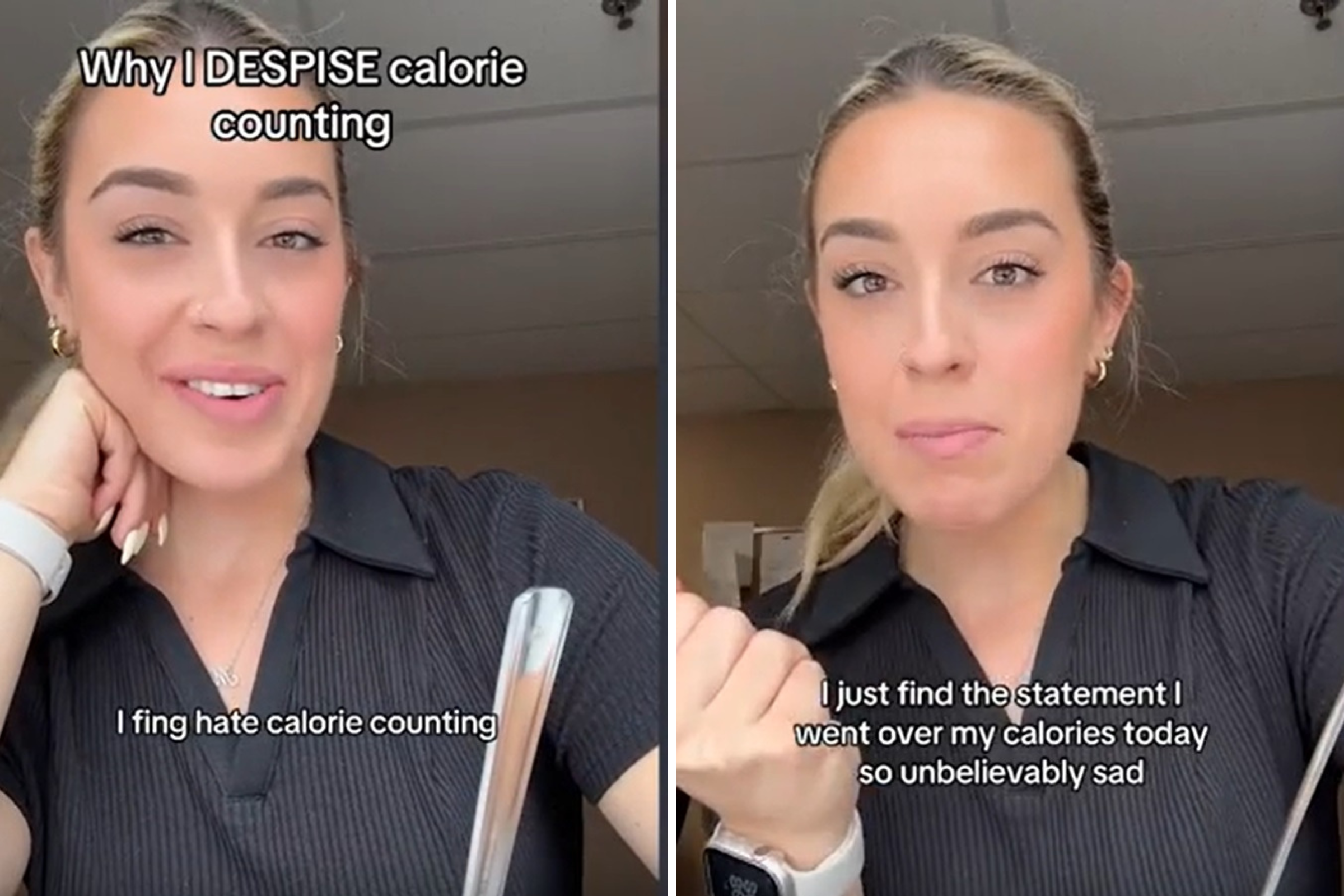Fitness enthusiast’s rant against calorie counting backed by expert

We are often told to watch what we eat, but Maddi Cerasuolo disagrees with taking this advice too literally. In a TikTok video, she explains why she “hates” calorie counting, a popular method used to lose weight.
The 24-year-old, who shares wellness and fitness-related content under the username @madswellness, tracked her food intake for seven years before noticing its negative effects.
“It initially gave me a sense of control, but over time it became overwhelming and led to unhealthy habits,” she told Newsweek. “I became hyper-focused on numbers rather than listening to my body, which ultimately made my relationship with food more complicated and stressful.”
TikTok/@madswellness/Maddi Cerasuolo
People often count calories as a method to lose weight, which involves calculating their energy needs based on factors like height, weight and activity level and then determining a daily calorie intake to suit their needs.
During the video, Cerasuolo, who lives in Toronto, says she couldn’t imagine weighing and tracking her food and passionately explains why she despises it. One of the top reasons was feeling “guilty” when she consumed more calories than planned.
She told Newsweek: “Calorie counting can be a tool for some, but I believe it’s important for people to focus on a sustainable, balanced approach to health.”
She continued: “I think it is a short-term solution and method and can only be effective for a certain period before it begins to affect you negatively or even just cause you to hit a plateau. I think a lifestyle you can sustain effortlessly, without the obsession and poor relationship with food, is much more of a long-term goal that more people should strive for.”
Today, she intuitively eats, which means eating only when she is hungry and stopping when she is full. No foods are off-limits, and she rejects negative feelings after a treat.
While counting calories has been shown to help weight loss, there is a dark side. In 2021, a group of researchers from the School of Psychology at Australia’s Deakin University conducted a study exploring the increasing use of calorie-tracking apps and their potential link to eating disorder symptoms.
The data from 1,357 adults showed that 71 percent had used a calorie-tracking app and 39 percent were current users. Participants using apps for weight control or body shape reasons were more likely to report symptoms such as food obsession, anxiety and purging, compared with those using the apps for health or disease prevention.
What Did the Expert Say?
Newsweek discussed Cerasuolo’s video, which has received over 37,000 views, with Francesca Lyon, lead nutritionist at Future Woman, a company that creates personalized health plans based on hormone testing.
Lyon, who lives in Amsterdam, said: “It might help with short-term weight loss. It’s not effective for lasting results or overall hormone and mental health. Why? Because weight loss isn’t just about calories in versus calories out. It’s far more complex, involving your metabolism, hormone levels, inflammation, thyroid function and nutrient balance.”
She said that women who rely on this method often regain the weight they have lost—sometimes even more.
“This is due to a reduced metabolic rate and muscle mass that occurs with calorie restriction, leading to a classic yo-yo dieting pattern,” Lyon told Newsweek. “Women are particularly prone to entering a low-energy state when they restrict calories. Their bodies adapt to lower food intake by slowing down metabolism and reducing their ability to conserve energy, making it even harder to lose weight in the long term.”
Instead, she recommends counting nutrients rather than calories. “A diet rich in essential nutrients supports energy, sleep, metabolism, weight and hormone health, helping you reach your optimal weight naturally.”
Lyon shared the following advantages and disadvantages of tracking food.
Pros of Calorie Counting
- Helps you become more aware of portion sizes.
- Can be effective for short-term weight loss, especially when quick results are needed for health reasons.
Cons of Calorie Counting
- Doesn’t prioritize nutritional value, leading to nutrient deficiencies and hormone imbalances.
- Often results in undereating, which can cause health problems like missed periods, low hormone levels and fertility problems.
- Can lead to an unhealthy obsession with food, affecting mental health.
Is there a health problem that’s worrying you? Let us know via health@newsweek.com. We can ask experts for advice, and your story could be featured in Newsweek.
Related
Yaslen Clemente Shows Off Leg Day Gains and Shares Her…
Yaslen Clemente isn't just an influencer—she's a fitness powerhouse. The social media star is known for her intense workouts, and she recently sha
Samantha Espineira Stuns in Blue Swimsuit and Shares Her 5…
Samantha Espineira knows how to turn heads, both on and off the runway. The successful model and Instagram influencer regularly shares breathtaking
The Best Fitness Trackers To Help You Reach Any Health…
Best Health Tracker: Oura Ring 3Why We Love It: I’ve tried many, many fitness trackers—but I tend not to stick with one watch or band for very long. I’ve
#CycleSyncing debunked: Popular TikTok trend not backed by science
A new study has debunked a popular TikTok wellness trend called cycle syncing, which claims that tailoring a workout routine to match the hormonal changes that












